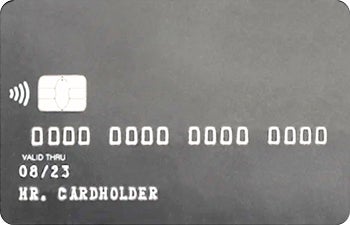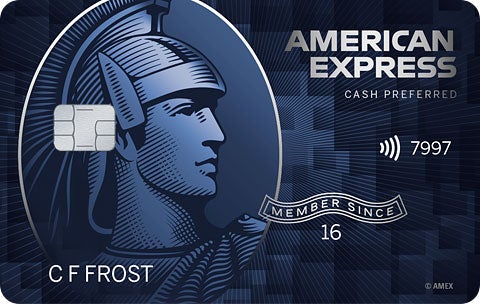































While it's easy to assume credit card rewards are only lucrative if you like to travel, that's not true. In reality, a number of rewards credit cards actually work better when you're redeeming points for cashback or gift cards. And some even provide more value when you redeem your points for high-dollar gift cards instead of cashback.
If you enjoy earning free stuff but don't want to go on a getaway, earning points for gift cards or a statement credit might be your best bet. With a gift card in your wallet, you might actually treat yourself instead of paying household bills or groceries. And if you don't want to go the gift card route, having a statement credit on your card might make it easier to do something special for yourself.
But, which card should you choose? The following rewards credit cards offer some of the best options when it comes to redeeming your points for gift cards and/or statement credits:
 card highlights intro bonusIntro Offer: Unlimited Cashback Match - only from Discover. Discover will automatically match all the cash back you've earned at the end of your first year! There's no minimum spending or maximum rewards. You could turn$150 cash back into$300.APR17.24% - 28.24% Variable APRrecommended creditGood/Excellentreward rates
card highlights intro bonusIntro Offer: Unlimited Cashback Match - only from Discover. Discover will automatically match all the cash back you've earned at the end of your first year! There's no minimum spending or maximum rewards. You could turn$150 cash back into$300.APR17.24% - 28.24% Variable APRrecommended creditGood/Excellentreward rates The Discover it Cash Back card offers the perfect opportunity for people who mostly want to earn cashback for statement credits and gift cards. With this card, you'll earn 5% cashback at different places each quarter like grocery stores, restaurants, gas stations, select rideshares and online shopping, up to the quarterly maximum when you activate. Plus, 1% unlimited cash back automatically on all other purchases.
Best of all, Discover promises to match the cashback you earn during your entire first year. If you plan to use your card often, this can be a huge boon -- and of course, it can definitely help you earn more gift cards.
Not only can you redeem your cashback for a statement credit, but the Discover it Cash Back card makes it easy to turn in your cashback for gift cards as well.

 card highlights intro bonusEarn a$250 statement credit after you spend$3,000 in purchases on your new Card within the first 6 months.APR19.24% - 29.99% Variablerecommended creditExcellent/Goodreward rates
card highlights intro bonusEarn a$250 statement credit after you spend$3,000 in purchases on your new Card within the first 6 months.APR19.24% - 29.99% Variablerecommended creditExcellent/Goodreward rates While you can redeem your cashback for statement credits, gift cards, and merchandise with this card, the Blue Cash Preferred? Card from American Express simply cannot be ignored in this space.
With this card, you'll earn an astounding 6% back on your first$6,000 in grocery spending at U.S. supermarkets each year (then 1%), which will lead to$360 in rewards if you maximize this category. Earn 6% cashback on select U.S. streaming subscriptions plus 3% cashback at U.S. gas stations and on transit, including taxis/rideshare, parking, tolls, trains, buses, and 1% cashback on all other purchases.
While this card does charge a$95 annual fee ($0 intro annual fee for the first year), the welcome bonus alone more than covers it, and if you spend a lot of money at U.S. supermarkets, you'll recoup that investment several times over.
And, if you buy a gift card for another retailer at a U.S. supermarket, you'd earn 6% cash back for the purchase. That means cardholders are able to earn that high 6% rate outside of grocery stores.

Whether you're after statement credits or gift cards, the strategy for earning as many points or cashback as you can is the same. The first thing you'll want to do is make the most out of your card's bonus categories -- which will obviously depend on which card you sign up for. For example, if you have the Chase Freedom Flex card, you'll want to go after your rotating 5% cash back categories with fervor when they align with your regular spending. Having the Blue Cash Preferred? Card from American Express, on the other hand, means you'll want to use that card exclusively each time you visit U.S. supermarkets.
Here are some additional tips that can help:
Since the number of rewards you earn is tied directly to how much you spend, putting as much on your card each month as you can get away with is the smartest way to beef up your point balances quickly. Aside from groceries at U.S. supermarkets and U.S. gas stations, see if you can pay other bills like your cell phone or Internet, utilities, kid's activities, and even insurance payments with credit.
Credit cards are best used as a complement to your budget. In other words, you should only spend the money if you have the cash in the bank to back it up and pay your card off right away. That second part -- paying your bill off right away -- is especially crucial as you build good credit habits. It can even be smart to pay your bill off a few times each month if that helps you stay on track.
Using a credit card makes it easier to overspend, forget how much you have spent already, or knock your budget entirely off track. To avoid that trap, get in the habit of tracking your credit purchases as the month ticks on. If you keep a running total, you'll be in good shape to keep yourself out of trouble as you pursue rewards.
[This article was first published on The Simple Dollar in 2020. It was updated in March 2022.]
 Hot Tags :
Our process
Finance
Credit Cards
Hot Tags :
Our process
Finance
Credit Cards